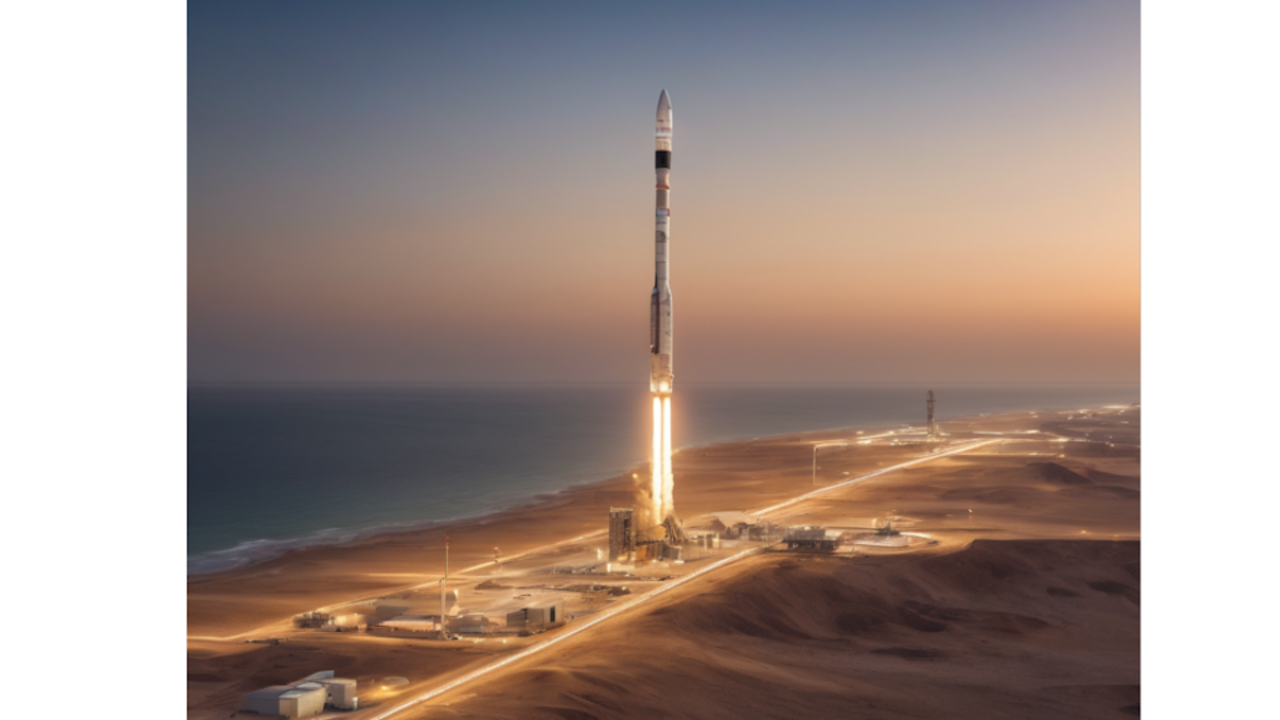Middle East runs its own space race
A growing number of Middle East countries are putting space at the top of their technology investment agendas.

Watch this space: Halo could soon be bringing space tourism to Saudi Arabia. Image: Halo Space
The Middle East is seeing more investment in the space sector and will also play a leading role in space tourism. That’s the message from Fred Liebler, a principal at FTI Delta, which is part of FTI Consulting, a global, industry-specialised strategy consulting practice.
“Many Middle Eastern countries have recently been investing in their space industries,” Liebler said.
The UAE is the most prominent player, especially in the civil segment, with the Emirates Mars Mission, an astronaut aboard the ISS, and now the Emirates Mission to the Asteroid Belt in 2028. But Liebler said other regional programmes show the importance of space to national economies.
Saudi Arabia is looking at space tourism and has been in talks with Spanish company Halo Space. Passengers would take off before dawn in a capsule suspended below a helium-filled balloon. They would be treated to a luxury four-hour trip offering fine dining in the stratosphere and a gentle return to Earth.
It plans to offer the $164,000 passenger flights from 2026, with Saudi Arabia pencilled in as one of four commercial launch sites. Halo Space is in talks with Saudi regulators as it plans to set up a base in the kingdom to serve wealthy Gulf space tourists.
“I think space tourism is a very exciting field and there is currently no clear leader in the region,” Liebler said.
“Saudi Arabia’s interest in space goes right back to 1985 when Prince Sultan bin Salman Al Saud became the first Saudi in space when he flew on the US Space Shuttle.”
In 2018, the Saudi Space Commission (now the Saudi Space Agency) was established, and in 2023 Ali AlQarni and Rayyanah Barnawi became the first Saudi astronauts to travel to the International Space Station on the Axiom 2 private mission, with Barnawi becoming the first female Arab astronaut.
Saudi Arabia’s Public Investment Fund (PIF) recently announced the establishment of the Neo Space Group (NSG), a wholly-owned PIF company that will become a national champion in the satellite and space sector. Neo aims to enhance Saudi Arabia’s space industry by developing local capabilities and boosting its strategic position within the growing global space economy.
Liebler said he wouldn’t be surprised if we hear more news soon about Saudi Arabia’s aspirations for a mission to the Moon, or even Mars.
“At FTI we are also seeing growing interest from foreign companies who wish to invest in the Saudi space industry,” Liebler said. “Some reports say that the region’s space sector could triple in the next 10 years.”
Other countries in the region are keen to expand their space exploits.
Egypt and Bahrain have recently secured a spot on a Chinese lunar mission. They are to develop and deliver scientific instruments for the Chang’e-7 mission, the Chinese mission aimed at searching for water ice at the Moon’s south pole in 2026. Their hyperspectral camera will provide high-quality data for diverse fields, such as environmental monitoring, natural resource surveys, and climate change studies.
And Oman is building a spaceport. The National Aerospace Services Company’s Etlaq space launch complex could launch its first rocket in 2030. Its location on the western edge of the Arabian Sea and quite close to the equator means it is ideally situated for satellite launches. Oman also has plans to build a space research centre for simulation missions and science experiments.
Finally, Qatar also has a space agency – the Qatar Aeronautics and Space Agency (QASA) is a non-profit organisation to support Qatar's overall aeronautical and aerospace development. The country’s Es’hailSat 1 and 2 satellites provide direct-to-home television services in the Middle East and North Africa region.
“The sky is not the limit for Gulf countries, but space is,” said Liebler. “Getting into space is not cheap and it is not easy, but a lot of this has to do with national pride.
“Putting one of your citizens into space can be a big achievement,” he concluded.”
Stay up to date
Subscribe to the free Times Aerospace newsletter and receive the latest content every week. We'll never share your email address.


